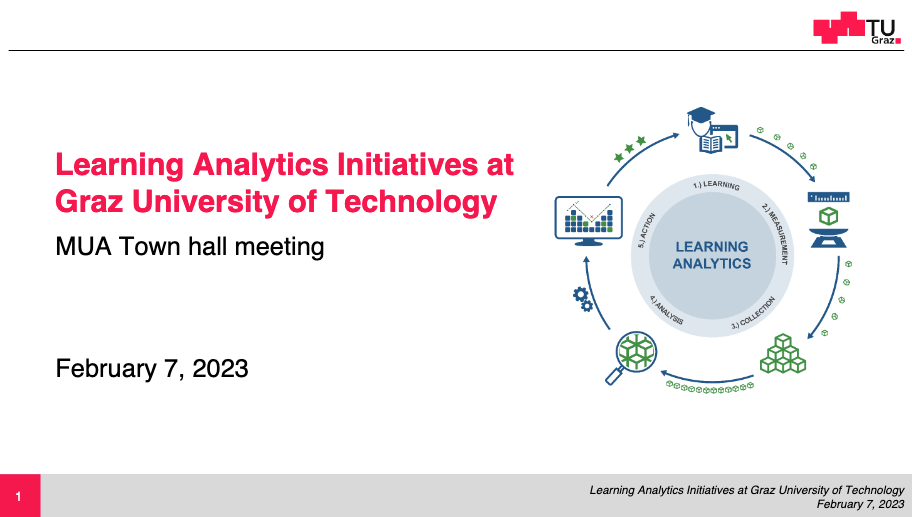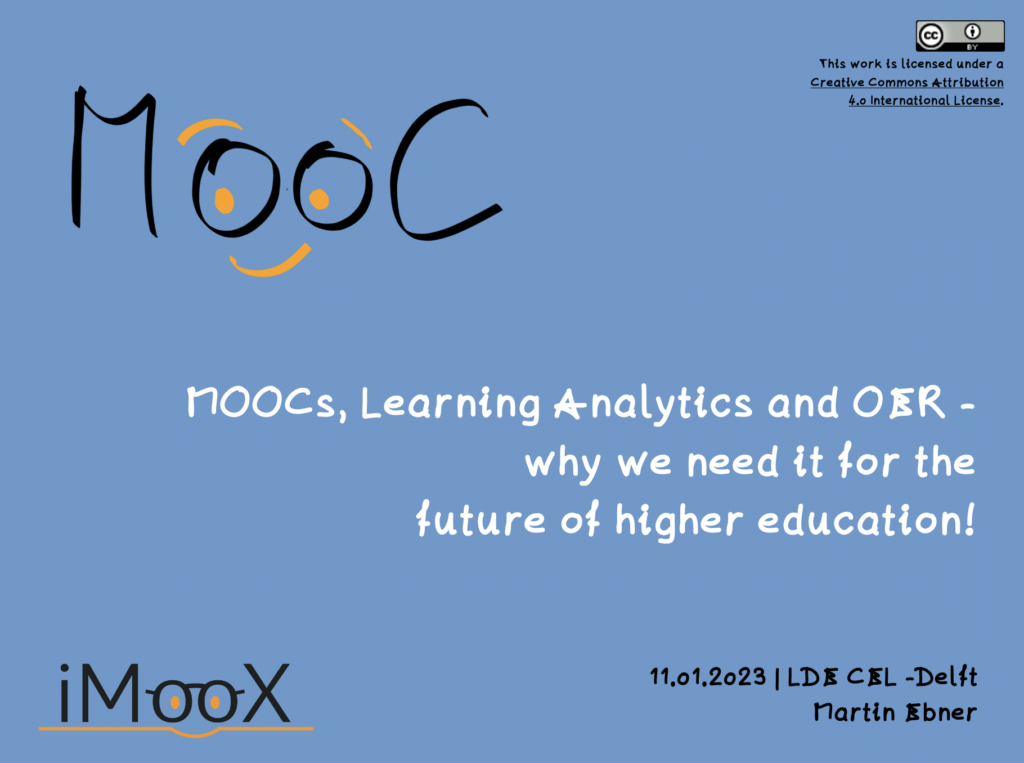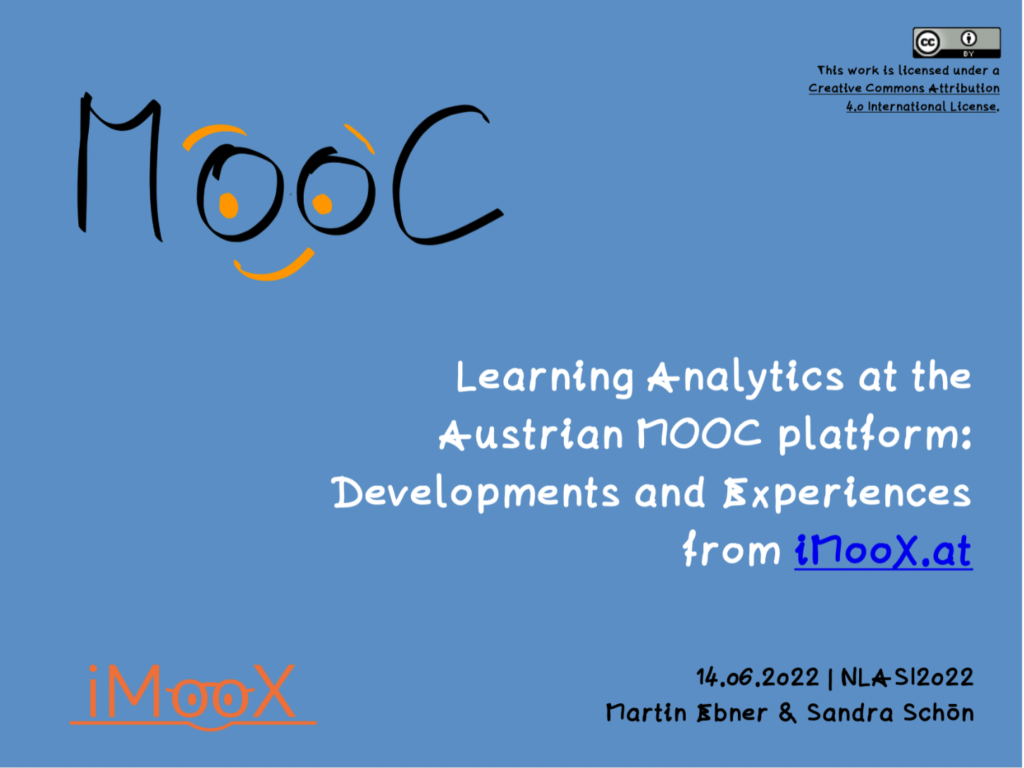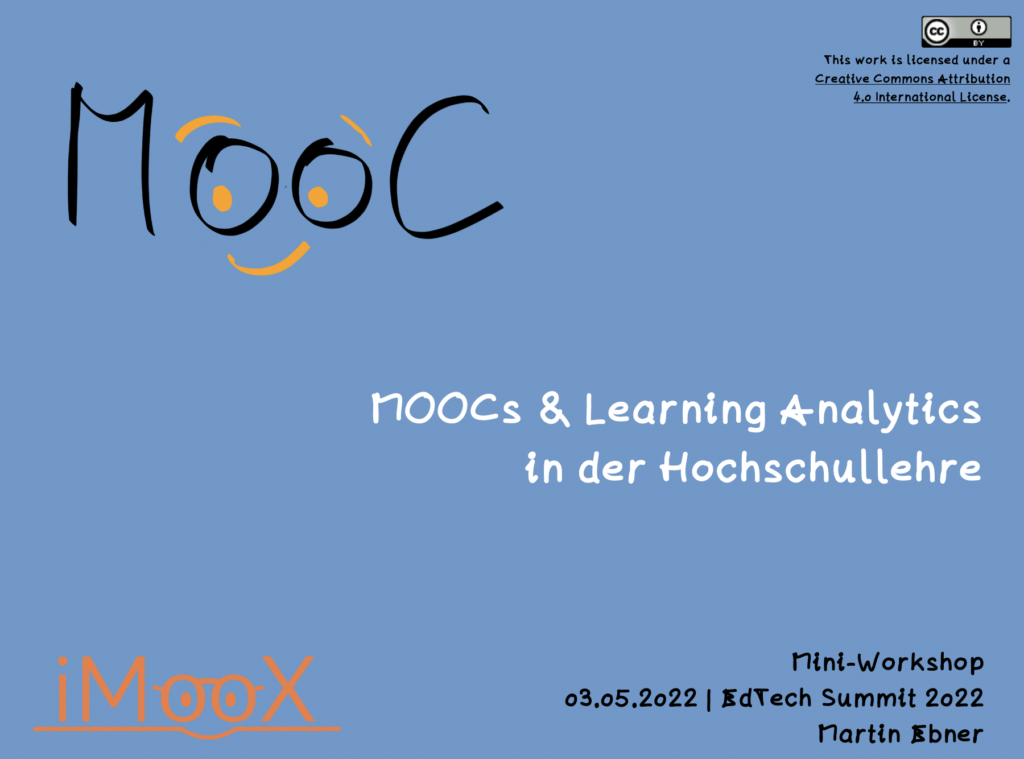Our poster/chapter about „Towards Trustworthy Learning Analytics Applications: An Interdisciplinary Approach Using the Example of Learning Diaries“ at HCII 2022 conference is published and available.
Abstract:
Learning analytics (LA) is an emerging field of science due to its great potential to better understand, support and improve the learning and teaching process. Many higher education institutions (HEIs) have already included LA in their digitalisation strategies. This process has been additionally accelerated during the COVID-19 pandemic when HEIs transitioned from face-2-face learning environments to hybrid and e-learning environments and entirely relied on technology to continue operating. Undoubtedly, there was never a time when so much student data was collected, analysed, and reported, which brings numerous ethical and data protection concerns to the forefront. For example, a critical issue when implementing LA is to determine which data should be processed to fulfil pedagogical purposes while making sure that LA is in line with ethical principles and data protection law, such as the European General Data Protection Regulation (GDPR). This article contributes to the discussion on how to design LA applications that are not only useful and innovative but also trustworthy and enable higher education learners to make data-informed decisions about their learning process. For that purpose, we first present the idea and methodology behind the development of our interdisciplinary Criteria Catalogue for trustworthy LA applications intended for students. The Criteria Catalogue is a new normative framework that supports students to assess the trustworthiness of LA applications. It consists of seven defined Core Areas (i.e., autonomy, protection, respect, non-discrimination, responsibility and accountability, transparency, and privacy and good data governance) and corresponding criteria and indicators. Next, we apply this normative framework to learning diaries as a specific LA application. Our goal is to demonstrate how ethical and legal aspects could be translated into specific recommendations and design implications that should accompany the whole lifecycle of LA applications.
[article @ book’s homepage]
[draft @ ResearchGate]
Reference: Veljanova, H., Barreiros, C., Gosch, N., Staudegger, E., Ebner, M., Lindstaedt, S. (2022). Towards Trustworthy Learning Analytics Applications: An Interdisciplinary Approach Using the Example of Learning Diaries. In: Stephanidis, C., Antona, M., Ntoa, S. (eds) HCI International 2022 Posters. HCII 2022. Communications in Computer and Information Science, vol 1582. Springer, Cham. https://doi.org/10.1007/978-3-031-06391-6_19






